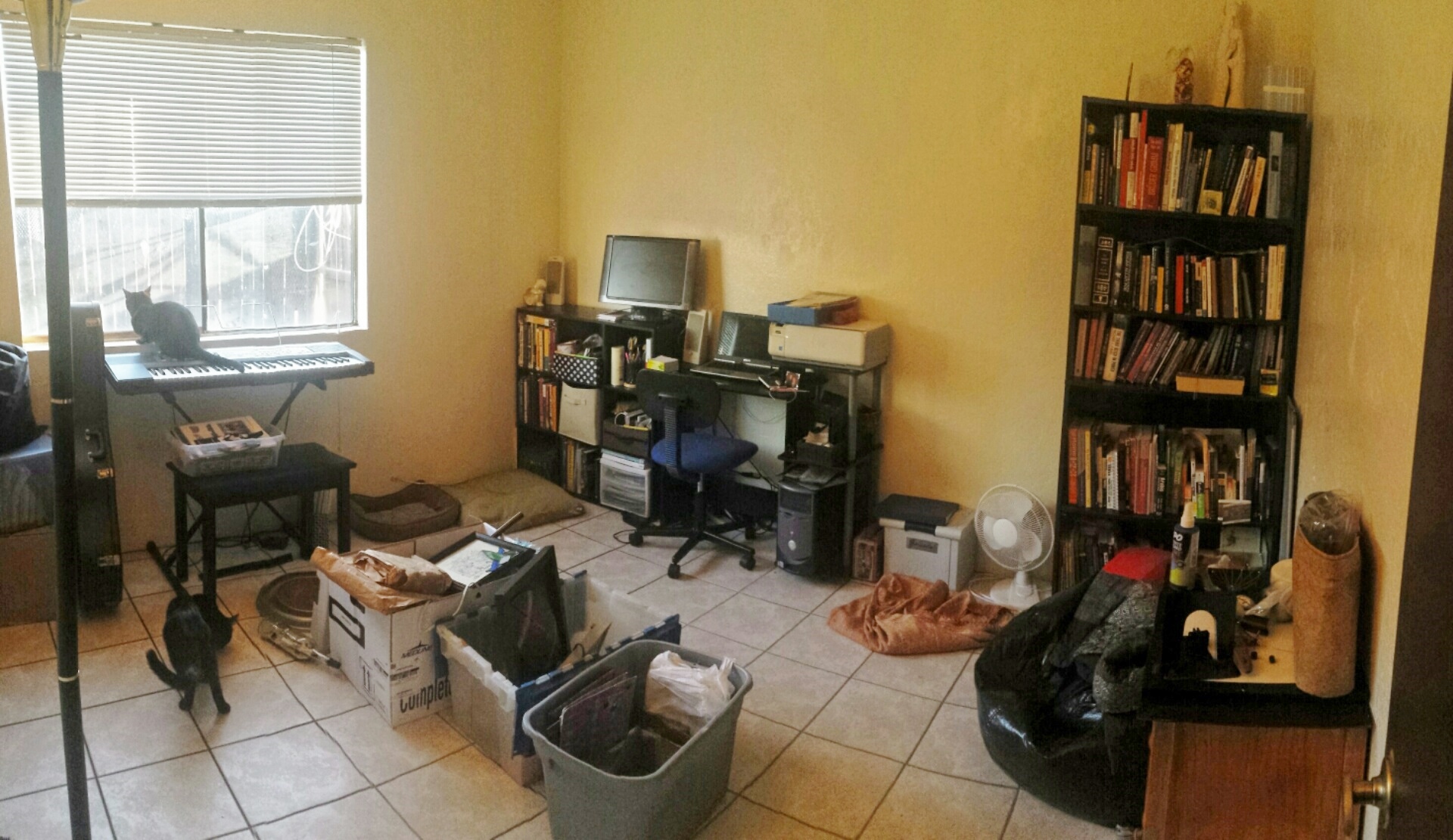Part 1 of 3 by Laurel Schenkoske
A little over two months ago, my husband and I moved, just a mile away from our old place. After two years in our Tucson duplex, our lease was finally up, and we were hoping for a better landlord, and needing air conditioning for the not-such-a-dry-heat monsoon season. We were lucky enough to have my parents and sister help with the cleaning and moving-in process, but even now, there is still clutter everywhere, and several random boxes sitting in the middle of the office. I was out of town for the last three weeks, for a very much needed break from work. Towards the end, I was feeling like I might be able to get re-motivated for work and school. But returning to the clutter I’d left behind, especially in the office, has made that much-needed motivation vanish.
 I am a Ph.D. student and an instructor at the University of Arizona, so, I’m a little busy. I don’t have weekends free and I don’t get summers off. I am never able leave my work at the office and forget about it until the next morning. Always, always, always, I have lesson prep and grading, research and writing, presentation and grant applications, committee responsibilities, and meetings – meetings as an instructor, meetings with my student cohort, meetings with my professors; they don’t end.
I am a Ph.D. student and an instructor at the University of Arizona, so, I’m a little busy. I don’t have weekends free and I don’t get summers off. I am never able leave my work at the office and forget about it until the next morning. Always, always, always, I have lesson prep and grading, research and writing, presentation and grant applications, committee responsibilities, and meetings – meetings as an instructor, meetings with my student cohort, meetings with my professors; they don’t end.
That all said, I need an organized, efficient space for work and concentration. This year it’s more critical than in the past since, with my more “flexible” (read, self-management requiring) time schedule, I need a place to work without distractions. And as most of us know, distractions abound. Facebook, Wikipedia, LinkedIn, and ohmygoshNetflix. And clutter. When I see clutter, my mind wanders. I want to clean, or to organize, or to just look in the stuff in that box over there. Whatever temptations the clutter offers, it is more appealing than the important task at hand.
Moreover, the distractions get in the way of my thinking process. In fact, physical clutter has the power to fill my mind with a sort of mental clutter. The more things I see around me, the more I can’t concentrate on my reading or writing. If I pause to reflect on my work and see stuff everywhere, my mind goes into cognitive overload and isn’t able to process anything fully. I begin thinking of all the things I have to do and start feeling anxious. My work takes much longer, and consequently, I have to stay up late, or get up early, or just plain fall behind.
But, if when I stare off into space, my eyes can rest on an empty piece of floor or a plain piece of wall, my mind has an opportunity to process and to rest. This gets me back on track much more quickly.
In German, there are a few sayings that apply here: Ordnung muss sein = There must be order; and Alles hat seinen Platz = Everything has its place. The first is a stereotype for the German lifestyle in general. The second applies more specifically to physical organization. But to have order in your life as a whole, everything does need its place. While my direct priority is to create a functioning office space, the underlying reason is that it will help create serenity and mindfulness in my home and in my life.
Mission: The Office. While much of our new home needs decluttering, organizing, and wall decorating, the office must be my new priority.
Goal: Work-ready in 2 weeks.
By: Laurel Schenkoske
Laurel is busy college instructor, Ph. D. student and wife. She is also writer for Top Shelf Home Organizing. Follow her as she discovers efficiencies in her own home, office and busy routine.
